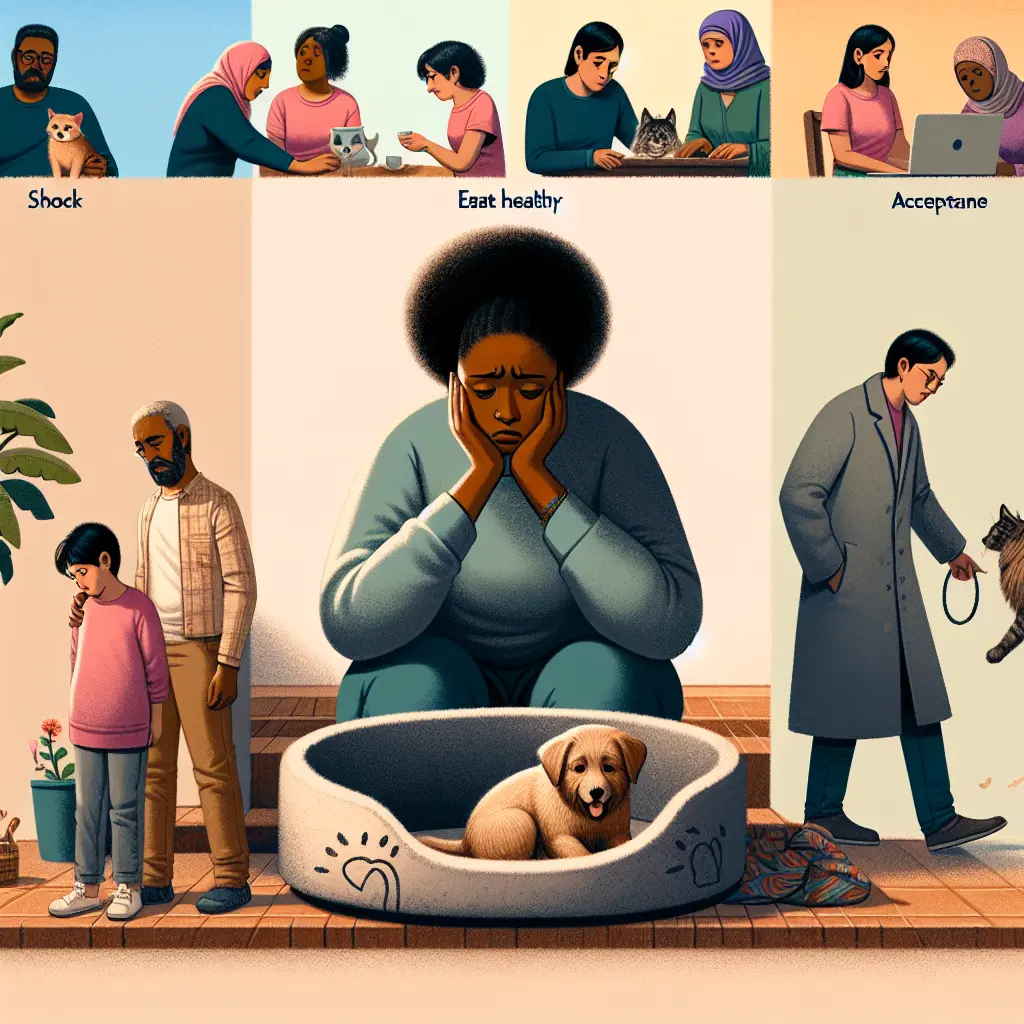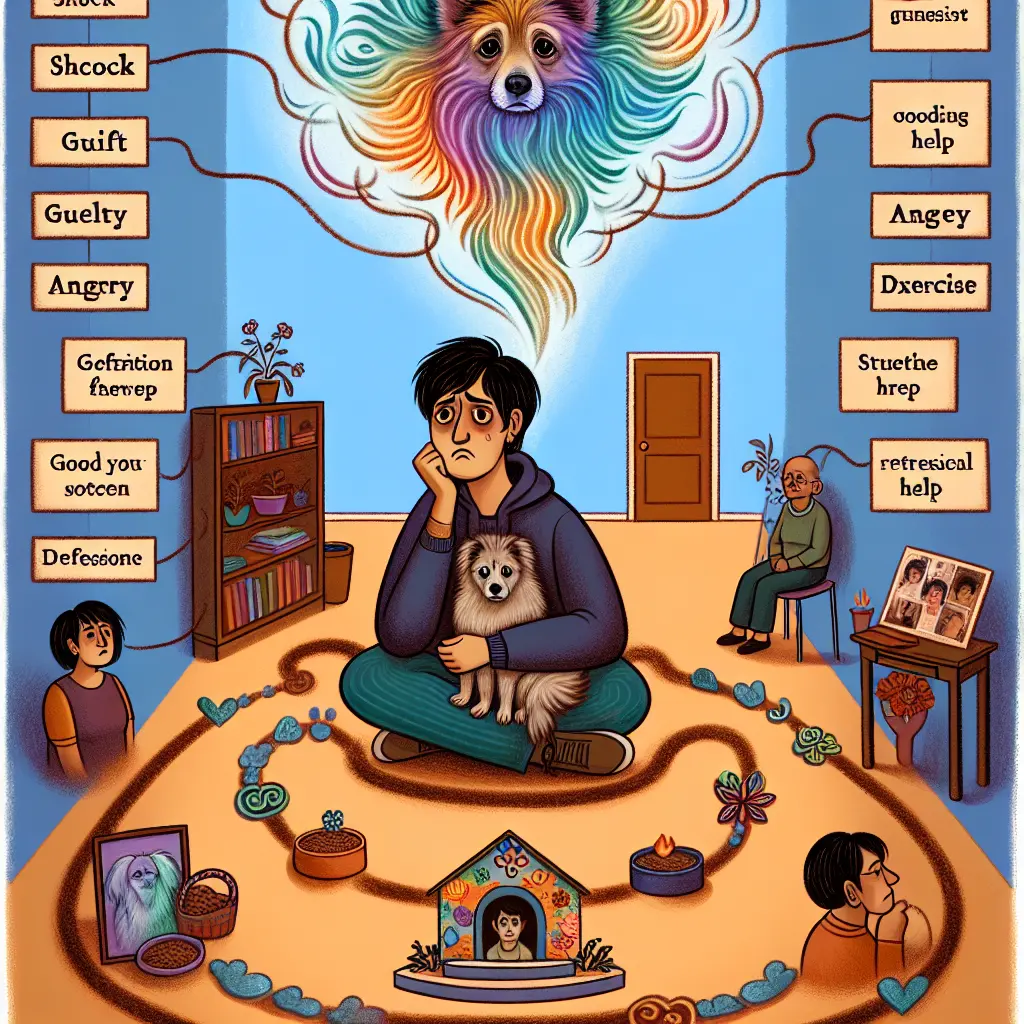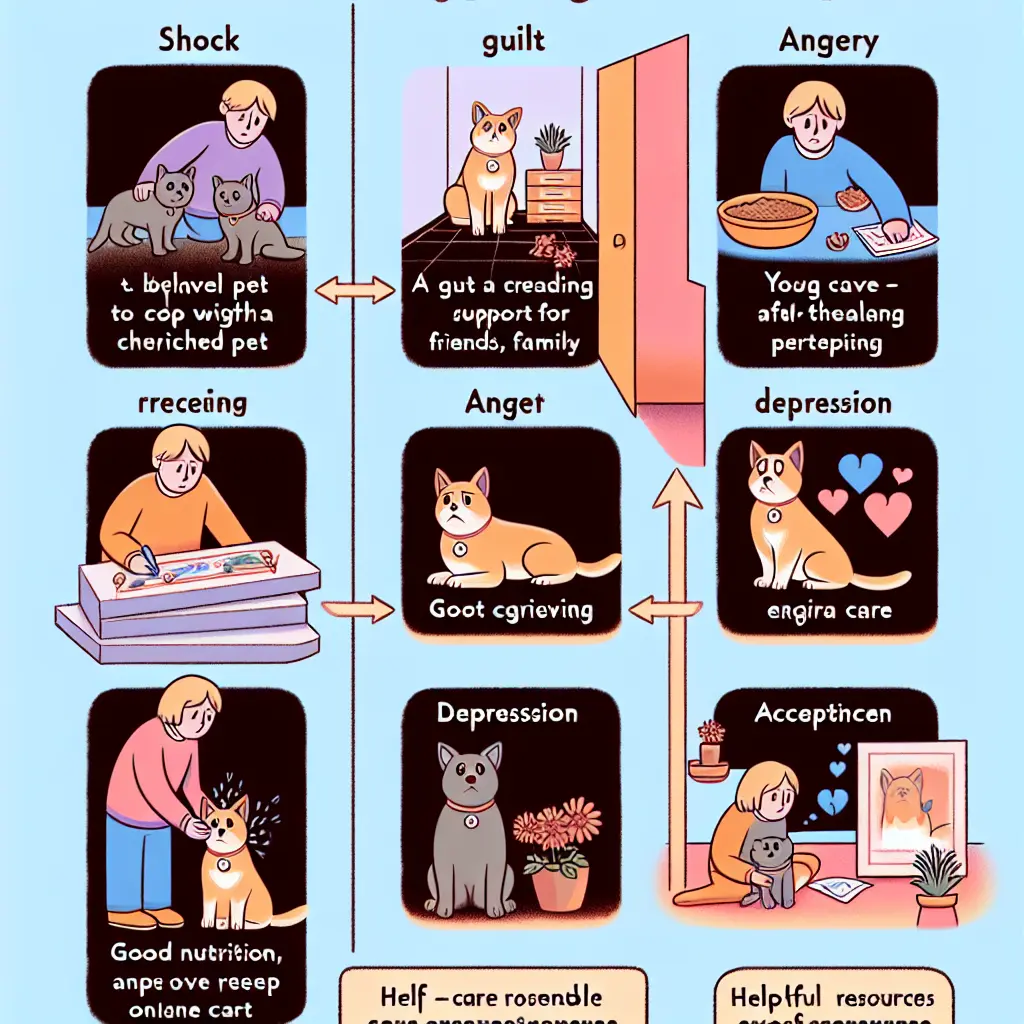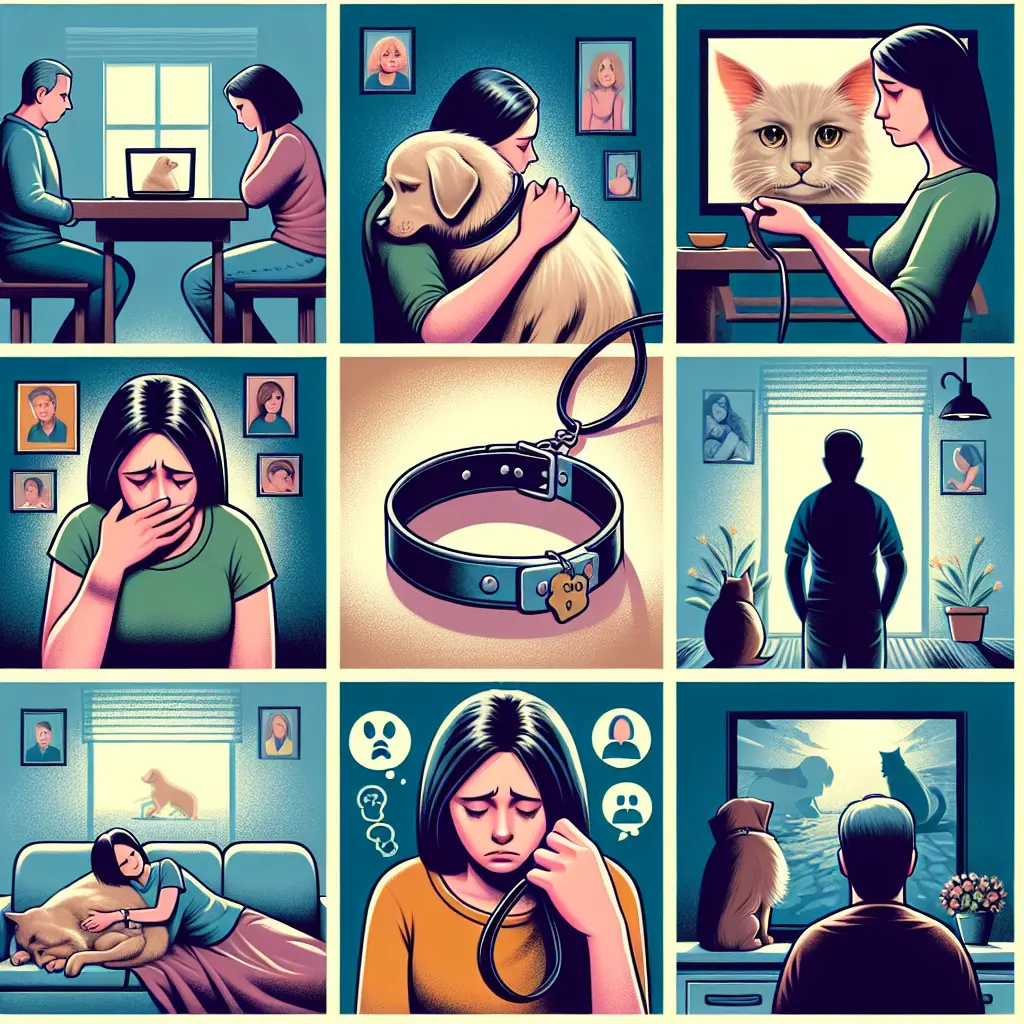Coping with the Loss of a Beloved Pet: Navigating Grief and Finding Peace
Losing a pet is an immense emotional journey that touches the hearts of many. Pets offer more than companionship; they become cherished members of our families. When they leave us, the pain can be profound. This guide will help you navigate this difficult terrain, find peace, and cherish the incredible bond you shared.

Acknowledging Your Grief
Allow yourself to feel. It is important to recognize your emotions and validate the grief you are experiencing. Suppressing these feelings can only complicate the healing process. Remember, grieving a pet is a natural reaction to losing a cherished companion.
Common Emotions Experienced
When a pet passes away, these are some emotions you might encounter:
- Sadness and Emotional Despair: It's common to feel heartbroken and overwhelmed [2][3].
- Guilt: You may question past decisions but remember you acted with the best intentions [2][5].
- Anger: This could be directed at yourself or circumstances. Understand that these emotions stem from hurt [2][5].
- Anxiety and Fear: The uncertainty about life without your pet can be daunting, but give yourself time [2][5].

Strategies for Coping
1. Focus on Positive Memories
Avoid lingering on the final moments. Instead, cherish the joyous times you had together. Happy memories can be a source of comfort [1][5].
2. Reach Out for Support
Share your feelings with those who understand. Support can come from friends, family, or pet loss groups. Online resources like the Pet Compassion Careline are available for support [1][4].
3. Memorialize Your Pet
Creating a memorial is a healing way to honor your pet. Consider a photo album, planting a tree, or memorial stone [1][5].

4. Take Care of Yourself
Your well-being is crucial during grief. Ensure you eat well, rest adequate, and stay active. Self-care supports emotional regulation [4][5].
5. Consider Professional Help
If the grief becomes unmanageable, consider reaching out to a professional counselor. Some specialize in pet bereavement [4][5].
Understanding the Grief Process
Grief is not uniform; it ebbs and flows. Be patient with yourself through this journey. Some days, you might experience relief, while others bring sorrow. This variability is part of the healing [2][5].

The Seven Stages of Pet Loss Grief
While the grief journey is personal, some stages are common:
- Shock and Denial
- Pain and Guilt
- Anger and Bargaining
- Depression and Loneliness
- Adjusting to Life Without Your Pet
- Finding a New Normal
- Acceptance and Hope
Remember, these stages aren't sequential nor universal [4].
Supporting Surviving Pets
Your other pets may mourn as well. Maintain their routine and provide comfort. Should behavioral issues persist, consult a veterinarian to exclude health concerns [1].
Deciding When to Get Another Pet
There's no rush in finding a new pet. Each pet has a unique place in your heart, and replacements aren't possible. Wait until you're emotionally prepared, perhaps considering adoption from a local shelter [1].
Conclusion
Traversing the loss of a beloved pet takes patience, understanding, and support. By embracing your grief, cherishing memories, and reaching out for help, peace can indeed be found. Remember, your feelings are valid, and healing doesn't adhere to a strict timeline.
For additional resources:
- Pet Compassion Careline: 24/7 support
- Association for Pet Loss and Bereavement: Online support groups
- ASPCA Pet Loss Hotline: For U.S. residents at 877-474-3310
- Pet Bereavement Support Service: UK based at 0800 096 6606
Explore the Jodhpur collection, Horse Riding Boot collection, Horse Riding Gloves collection, and variety of Horse Treats and Gifts today.

